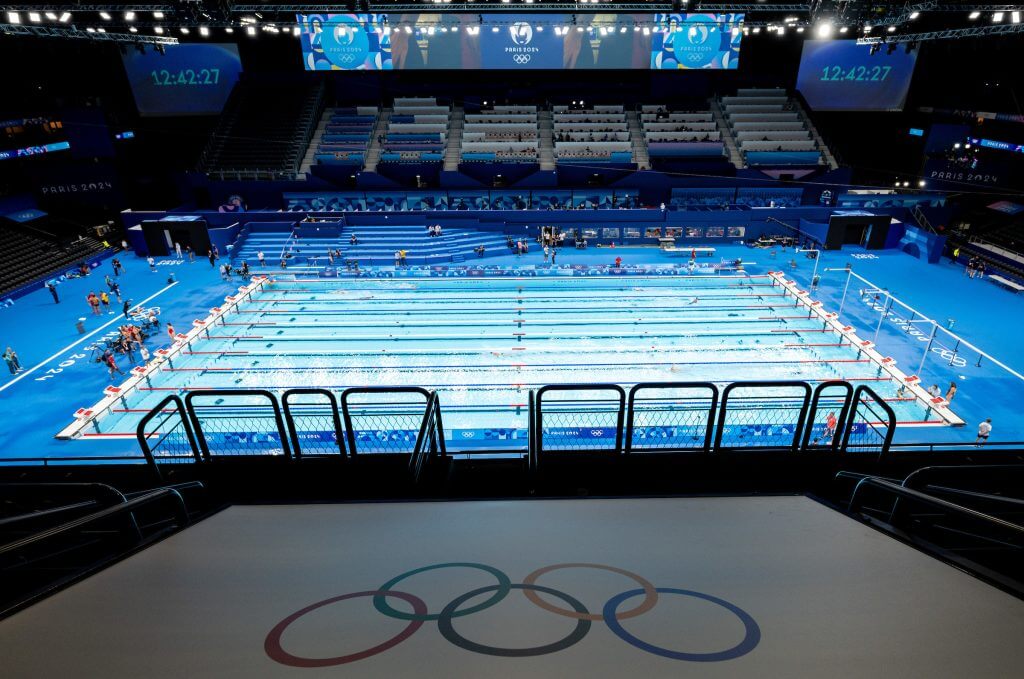The Return of Olympedia: Heartbeat of Olympic Stats and Information Restored
Want to know Gretchen Walsh’s 100-meter butterfly time from a recent weekend? Curious about Leon Marchand’s splits from his world record in the 400 individual medley? The information can be found through a simple Google search, with meet results or sites like Swimcloud providing an easy resource for data tracking. Internet resources like the “Sports Reference” websites store decades of statistics as well, making it easier than ever to track almost every sporting event.
The exception? Perhaps the world’s biggest sporting event: The Olympic Games.
For several years, the leading stat-tracking site for The Olympic Games, “Olympedia,” has been dormant, due to non-renewal of its contract with the International Olympic Committee in 2023. But after a few years in flux, the site will return, and just in time for the 2026 Winter Games.
In a sports world dominated by data, “Olympedia” is a special site, one packed with more information than is almost imagineable from the Olympic world. Heat results from swimming at the 1912 Olympics is available. So are birthdates of all Olympians. Medal counts? In what format woul you like them? The information provided is staggering, and much appreciated by casual fans, Olympic diehards, families and journalists.
Through a dedicated effort, creator Bill Mallon and his team, known as the OlyMADmen, are eager to continue a “hobby” that has transformed into a phenomenon.
An Olympic-Sized Hole
Olympedia’s disappearance was always a curious case, per Mallon. The website actually began as a part of “Sports Reference,” in which it was updated in a similar fashion to popular American sports like football and basketball. But after aligning with the IOC, the website fell out of favor. The International Olympic Committee opted not to renew its contract in 2023, a move that confused Mallon.
“We told them, look at all these other sports, they’re pretty well-documented, while the Olympics are not,” he said. “It was frustrating that they didn’t recognize that.”
The group did not update the site for the entirety of the 2024 Olympics, the first Olympics that was missed since the group began tracking in 2008. Feedback revealed that “Olympedia” was greatly missed. Mallon received various messages from families of former Olympians who had passed, or families who found small errors in the data, asking for the site to be changed.
“We didn’t like the fact that we had to tell them, without the contract (with the IOC), there was nothing that could be done,” he said.
The new agreement will allow these changes to be made. It’s something the site’s builder, and key data collector Jeroen Heijmans, pointed out as an uplifting part of the job.
“Getting responses from athletes and families, it does create a lot of great interactions,” Heijmans said. “It shows that people really appreciate (the work we’re doing.”
What Work Lies Ahead?
Updating the database, after missing an entire Olympics, would seem like a difficult task. But the team kept track of all the data from last year’s Games in Paris, despite the website being down. Both Heijmans and Mallon described their commitment to the project as a “lifetime hobby,” making their passion to record the data unchanged, even without a place to enter it.
“I used to tell people, I do this because it keeps me sane,” said Mallon, an orthopaedic and former PGA Tour golfer .
The focus will now shift to displaying the group’s work, which according to Heijimans, should be easy. In the meantime, some time may be spent researching some other fun projects to add to the site.
“We added some of the Ancient Greek predecessors to the Olympics this year, which was an exciting project,” Heijmans said. “We’re constantly looking to find results no one else has.”
A Fascinating Future
As the 2028 Olympics in Los Angeles creep closer, new challenges surely await the statisticians. One is tracking the constantly expanding roster of events, including swimming’s impending addition of the 50s of each stroke.
“It’s an interesting challenge for us”, Heijmans said. “We’ve had to be pretty flexible with how we input each sport (due to the changes).”
The advancements of sports analytics also could prove to be a hindrance in the future. As Mallon pointed out, new technologies allow statistics to be tracked in real time, beyond the capabilities of the “Olympedia” team.
“The analogy is, sports statistics have gone into working with complex numbers, while we’re still working on real numbers,” Mallon said.
However, as evidenced by the support of the community, a place exists for the website. The hope of the group is that the IOC views things the same. Mallon spoke of goals for integration with the official Olympics website, providing easier access to the statistics in the future.
In Heijmans’ eyes, the reasoning for continuing the project remains the same: the group’s passion.
“It’s important to us, because it’s something we like doing,” he said. “It’s quite simple.”
